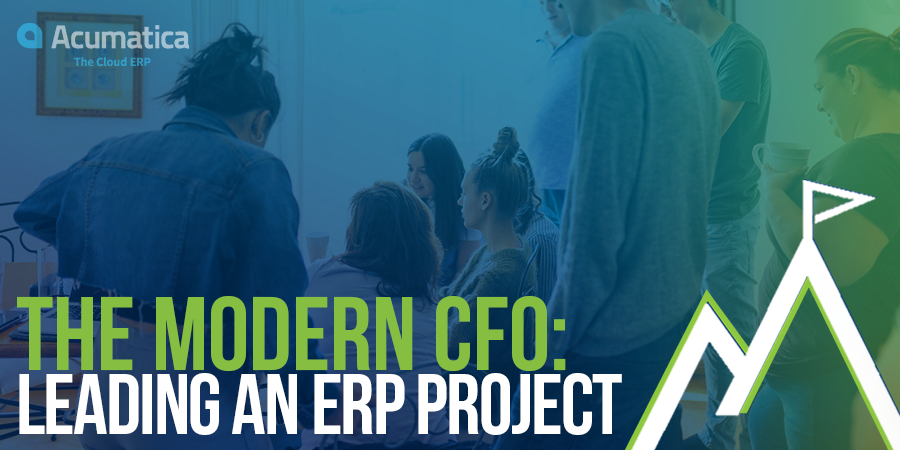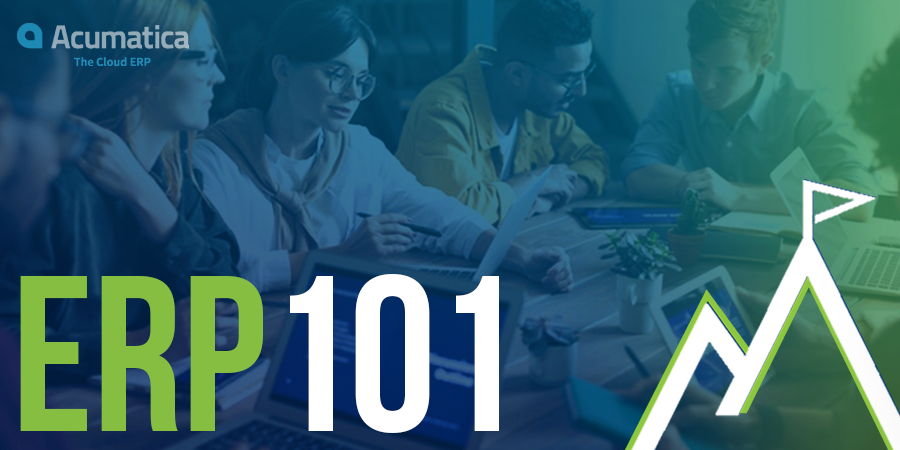How to Improve Cost Accuracy and Customer Service in Your Cosmetics Manufacturing Business
The skyrocketing growth of the digital landscape has left cosmetics manufacturers rushing to keep up with evolving customer demand. Customers now...

The retail industry is adapting to the rise in eCommerce, and business leaders in the industry are wise to look to the benefits of cloud ERP for retail Software to see them into the future. Global eCommerce saw a 15% rise with sales nearing $3 trillion last year, according to Internet Retailer — and there’s every indication that this trend should continue.
With more consumers turning to online solutions, retailers must be equipped with the technology to shoulder the eCommerce wave. Regardless of whether the retailer is omnichannel or brick-and-mortar, only adding online shopping capabilities to their offerings, an ERP solution can improve efficiencies and grow a company’s bottom line.
Implementing a cloud system can help a company be competitive in the ever-evolving eCommerce and retail environment. Let’s look more closely at the benefits of a cloud ERP solution can do for a retail company looking for innovation and growth.
In an industry moving full speed ahead, there’s no time to learn from yesterday’s mistakes. Hindsight comes when it’s too late. What eCommerce leaders need now are actionable insights.
Real-time data that can that is accessed via smartphone, tablet, or laptop with any browser or app can make the difference in making a sale. All too often, shoppers leave items in their virtual shopping carts, never completing a purchase. With an all-in-one business platform, retailers can make sure they are doing everything possible to drive shoppers to hit the “order” button.
Every site should offer customers realistic expectations around product quantity and information, out of stock products, cancels/returns, and product status. Customer service representatives should be able to see in-depth details related to warehouses across all locations, shipping and receiving, billing, and other relevant areas.
With an ERP system in place, other departments, such as sales and marketing, can track valuable information that provides the basis to put a better business development plan in place. When a company knows it’s demographic, key customers, and areas of growth, it can better lay out a strategy to take it forward.
In today’s changing retail ecosystem, shoppers want a good experience online. Companies that can give shoppers what they are looking for are far more likely to look current with the times, and relevant. Websites should include a smooth user experience with interactive chat options, as well as the ability to customize orders.
The better the insights, the more options eCommerce enterprises will have. More and more retailers are
offering shoppers conveniences such as ordering online, but paying or picking
up items at a physical location, or being able to take items purchased online
to a store for an exchange or return.
Making the shopping process easy is vital — the more enjoyable the experience, the more likely customers will complete orders and feel positive about their experience. With an ERP system, reminders and updates can be sent to registered customers.
Collecting valuable customer information can benefit the company in its outreach from both the sales and marketing angle. With information such as name, email, billing and shipping address, as well as past payment experience, there are many ways to reach out to customers, which can make a lasting impression and drive repeat business.
The good news for eCommerce companies is that an ERP solution is an affordable tool that won’t drain the annual budget. Cloud systems are considerably less expensive than outdated, on-premise legacy systems and require much less attention from the internal IT department.
Business leaders will benefit from a modern cloud ERP that helps improve efficiencies while offering opportunities to increase profits. Employees will be able to better focus on areas of the business that can expand the client base and offerings, instead of wasting time on stale practices. An ERP can send updates directly to department heads and managers, eliminating paper trails that cause waste and frustrating time lags.
It’s crucial that a company selects a vendor that offers flexible features and resources. Allows clients to adjust the number of users as needs expand. Other key factors that impact pricing are: licensing (SaaS Subscription, Private Cloud Subscription, or Private License), projected level of consumption (business transactions and data storage), and the applications the company would like to use (integration should be easy, including options such as BigCommerce, Magento, and Shopify
When decision-makers compare the cost versus the benefits, the question is: How can an eCommerce retailer not invest in a cloud-based ERP solution?
Today, a cloud-based ERP solution can give eCommerce retailers the advantage needed to succeed. Deciding to implement is an essential step forward. Choosing an experienced partner that understands the company’s scope of business and objectives.
With over 25 years of experience, at Milestone we know that ERP solutions are what can improve ROI (return on investment). Working with clients to meet individual objectives and needs is our specialty. Contact us to learn more or to schedule a complimentary software consultation.

The skyrocketing growth of the digital landscape has left cosmetics manufacturers rushing to keep up with evolving customer demand. Customers now...

Originally published September 2023 • Updated January 2026

ERP (Enterprise Resource Planning)—sometimes called business management software or even advanced accounting software—is the system that keeps modern...